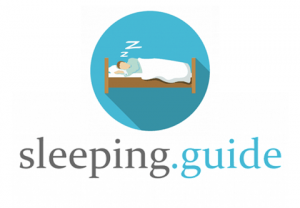‘I get by just fine on 6 hours sleep a night’
…is one of the biggest lies told by people today.
We see it everywhere. From ambitious friends to business leaders – just about everyone seems to think they don’t need a full night’s rest.
Supposedly, President Trump gets by on just 4-5 hours, while famed entrepreneur Elon Musk spends ‘120 hours’ a week working – tweeting at 2.32am that ‘sleep is not an option’.

Maybe all of these people are blessed with not needing sleep. Granted, it’s true that some lucky people don’t feel as much of the effects of not sleeping. However, that number is 1 in 12,000 people who only need 6 hours.
That is less than 0.01% of the population who don’t need 8 hours of sleep every night.
If you think about all of the people you’ve ever met in your life, maybe one of them is in this category. It is super rare.
So why do so many people believe they have this super power? I don’t know about you, but at least 1 in 5 people I know are convinced they’re ‘doing just fine’ on 6 hours sleep.
This might be because of developing a new baseline. In other words – ‘you do not know how sleep-deprived you are when you are sleep deprived’. As the renowned sleep scientist Matthew Walker writes in his book Why We Sleep:
With chronic sleep restriction over months or years, an individual will actually acclimate to their impaired performance, lower alertness, and reduced energy levels. That low-level exhaustion becomes their accepted norm, or baseline.
Is 6 Hours of Sleep Enough?
Unless you’re within the ultra-rare category of people who need less sleep, then no, 6 hours of sleep a day is not enough. 6 hours might be enough to make you feel ‘normal’, but based on countless scientific studies – 6 hours isn’t giving your mind and body enough time to keep you the healthiest and happiest you can be. Missing out on 2 hours a night might not sound a lot, but it definitely adds up.
What Happens When We Only Get 6 Hours of Sleep?
Below I’ve collated a list of things that happen when we don’t sleep. It doesn’t make for fun reading, but it’s important to know what we’re missing out on when we’re pushing ourselves to burn the candle at both ends. And given what sleep scientists have found, you may not even recognize that you’re suffering from these right now!
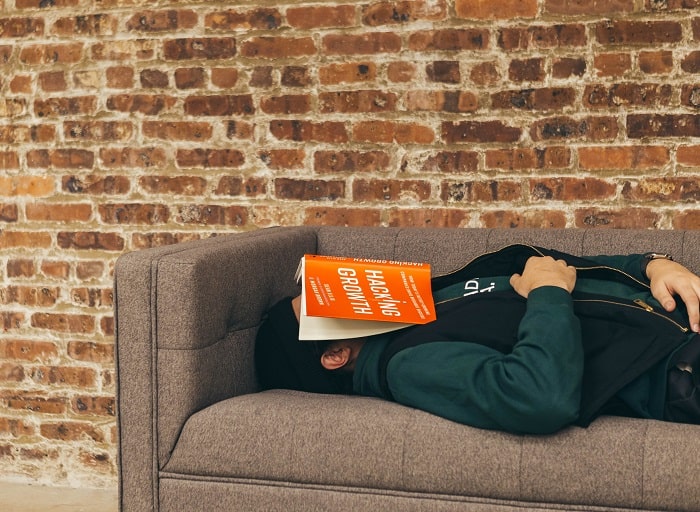
(By knowing what to look out for, we can spot and manage each aspect better).
1. You forget things easily.
One of the things that suffer most when you lose out on sleep is your memory. In particular, your ability to remember anything new. When we’re awake, our short-term memories are stored in a small part of our brain, and these are transferred to our long-term memory when we sleep.
In computer terms, think of it as a USB stick. The small stick stores your short-term memories from that day, and when you sleep, the data is transferred into your big hard drive – for the long-term.
When we stay awake for a long time, the little USB stick fills to capacity. That means for any new memories to have a chance, they have to force out old memories. You will forget so many things, just because your short-term memory can’t hold everything. (This is especially true when studying for a test!).
How Sleep Fixes This: By sleeping, even just for a nap, you allow your brain to process everything you’ve experienced and open up much more memory space for you to use.
2, You can’t focus properly.

The first (of many) brain functions to suffer from a lack of sleep is your concentration. An experiment performed by sleep scientists found that after just one sleepless night, participants lost concentration 4 times as much as when they were rested. When you factor in how easy it is to get lost in distractions like YouTube or Facebook, you can imagine how badly this affects productivity!
Likewise, it’s even worse when you put driving into the equation. Some simple but important research carried out by the AAA Foundation for Traffic Safety are eye-opening.
They looked at over 4,500 crashes – focusing on how many hours the driver slept the night before (accounting for things like age, time of day, crash location, etc.). Here are the results:
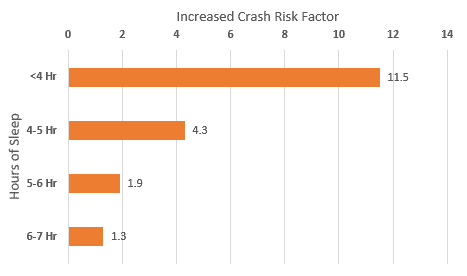
The scariest thing is that it isn’t a straight line. The longer you stay up, the worse and worse things get. Just 7 hours is +30% crash chance, another hour is almost double, then triple, then ten times the original! It’s crazy.
If you’re tired – please think twice about driving.
The good news is that naps can help, but it’s important to understand how. I’ll be releasing a full guide on naps in the future, but for now just understand that the earlier you nap, the better. If you’ve been up all day and need to drive at 9pm, its better to take a nap at 11am than at 7pm (fatigue accelerates, so the earlier you slow it down the better).
Concentration Experiment link. By Dinges et al, 1997, American Sleep Disorders Association and Sleep Research Society.
Car Crash Research Link. B Tefft; AA Foundation for Traffic Safety, 2016.
3. You lose your willpower.
Ever tried to stick with a diet after a sleepless night? It’s pretty impossible.
Your willpower is a finite resource.
Think of it like a battery.
It’s full in the morning and gets depleted every time you use some of it.
For example:
Resist a burger for a salad? That costs willpower.
Resist staying in bed to get up early? More willpower.
Resist TV to go on a quick run? You guessed it! Willpower.
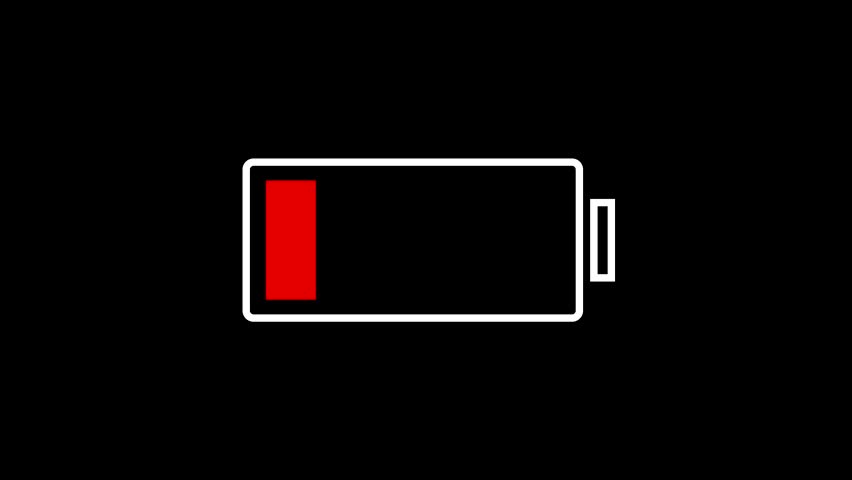
It’s important to recognize this and focus on what you want to ‘use’ your willpower for – don’t try to tackle too much at one time. (This is one of the main reasons why so many New Year’s Resolutions fail – they target too much).
When you miss out on a full rest, your battery won’t be charged. Especially if you’re sleeping just 6 hours a night – it’s not ok.
It’s like leaving in the morning with your phone at only 50% charge. It still works, but by lunchtime, you’re probably reaching for those cheesy burgers with some salty, savory fries.
Unfortunately, the proof for this side effect is not a funny one about people getting fatter – it’s a sad one. It’s a study proving that disturbed sleep is a key risk factor for relapse in people with drug addictions. While you and I may grab an extra doughnut when we’re tired, some people are fighting much worse temptations.
4. Mood swings.
Have you ever gotten up super early to go on a trip or do something with others. But you notice everyone is just a bit quicker to anger, or more cynical about things? Then, later on, people start acting funny and finding everything really hilarious? Welcome to another effect of sleep loss: mood swings.
When we are well rested our brains keep a balance in terms of how we react to things. Stressful things can be managed, crazy things are kinda funny – but nothing is irrational.
If we are really tired, though? It’s a different story. A study by Matthew Walker, the author of Why We Sleep, showed the effects of tiredness on the emotional centers in our brains. While it’s often thought that tiredness can just make us negative and cynical – it can also make us hyperactive and excitable, too.
When you’re tired your brain can’t properly control your emotions. You more easily get upset and pessimistic or overly excited and optimistic. While the second sounds fun, it is what leads to eating too much, signing up to things thinking “it’ll be fine!”, and even buying things you don’t need (especially since your willpower is down).
Throw all of this together, and it can make all these other side effects even worse! Constantly getting only 6 hours of sleep will mean you’re constantly getting these kind of mood swings.
5. Weight Increase
Add together the rapid mood swings and loss of willpower from above, and this side effect is hardly a surprise – weight gain. It’s only natural that with those two things going on, you’re going to end up reaching for a handful of doughnuts over that salad to help keep yourself awake.
However there’s something else at play here, too. In order to feel hungry and to feel full, your body produces hormones which make you feel hungry (Ghrelin) and full (Leptin). When you’re tired, these get messed up and give us a serious cause for concern. Your body starts to make much more Ghrelin, making you feel so much hungrier, and much less Leptin – suppressing that feeling of being full.
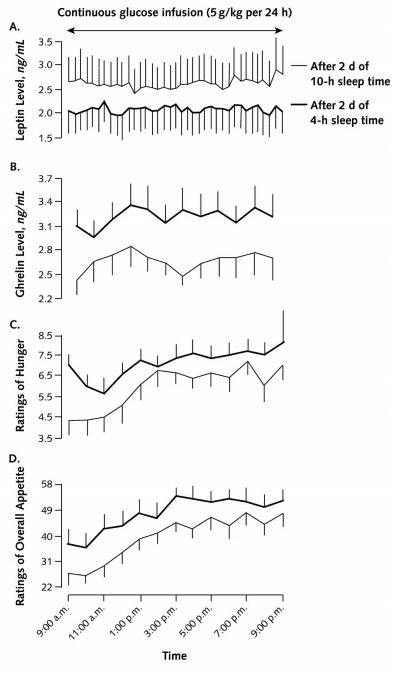
These charts show just how significant the effect of sleep loss can be.
Not only were people much hungrier, they also had much stronger cravings for high-calorie foods like sweets, snacks, and sugary drinks. A perfect appetite for ruining a diet!
6. Make Mistakes
When you miss out on sleep, one of the first things to fall is your concentration levels. While you may not always notice, tiredness means that your brain goes through many more ‘lapses’ of concentration where you zone out or even stop responding to things completely.
The scientific name for these are ‘microsleeps‘.
Have you ever had those moments where you ‘snap’ back to reality after your eyelids close and your head begins to drop? That’s a microsleep. It’s your brain briefly shutting off – even though you might be watching something, talking to someone, or even driving!
Your brain stops responding to stimuli completely. This makes it very, very hard to drive safely, pay attention to a teacher or even just read an internet article..!
One study by Dorrian et al shows just how much our concentration start to fail without sleep.
They kept a poor group of people awake for 4 whole days, measuring how their concentration started to fail the longer they were awake. For 10 minutes at a time, these tired souls had the ‘easy’ task of just pushing a button whenever a red light turned on. You can see how even at 36 hours there’s a huge 4 second gap between the light turning on and them hitting the button.
Obviously the scary thing is to imagine this person behind the wheel of a car.
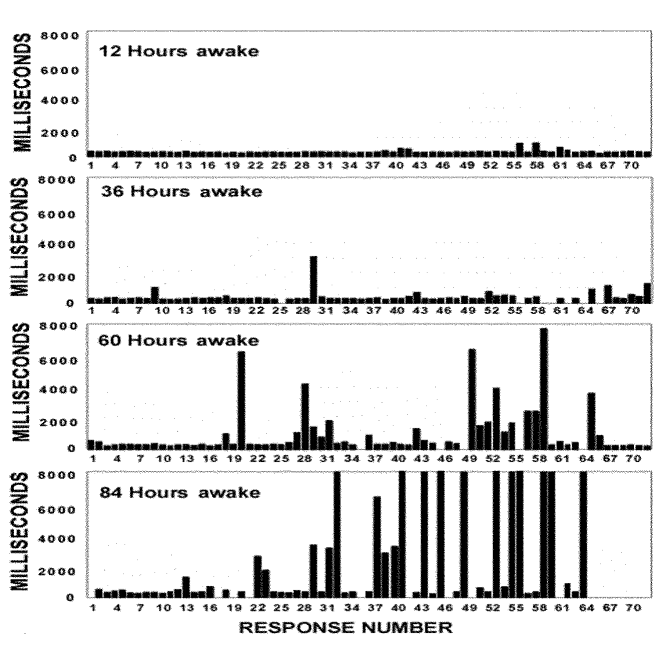
You: “But I don’t ever stay awake for longer than a day, this doesn’t matter!”
While that’s true – there’s one thing we need to understand. Lack of sleep builds up over time. If you only get 5 hours sleep a night for 4 nights – it’s been found to be the same as if you had just stayed awake for 24 hours straight!
Which means if you’ve been having a week of really bad sleep, those lower graphs may not be too far away from where you’re at. Scary.
7. Over-Do Caffeine
If you’re reading this as a coffee-lover (which 64% of Americans have every day), you understand the game-changing effects a good cup of joe has.

However, I we need to think about coffee when we are knackered. I don’t just mean tired, I mean head’s-drooping-but-got-tons-to-do kind of day.
If you’re anything like I used to be, then you’d be practically trying to inject coffee after coffee just to try and get through the day.
As a quick aside; caffeine works by easing the ‘sleep pressure’ that builds up in your brain while you’re awake. This hormone (called Adenosine) binds to the caffeine, so you don’t feel it. The downside? All of that sleep pressure is still building. When all of this comes flooding back after the caffeine fades off – that’s what causes a crash.
Caffeine will make you feel more awake – it’s true. But over-doing caffeine to fight tiredness can be a huge trap: caffeine doesn’t work that well.
While caffeine is great at making us feel more awake, the complex processes of our brain don’t get such a benefit. Learning, memory, emotional stability, and others are still just as screwed because of a lack of sleep – even if you feel wired to the moon. Considering it often comes with a buzz and a crash, caffeine also makes the mood swings from tiredness even worse!
I know what you’re thinking – “but I work so much better with coffee!”. I need to ask; do you really? It may feel like you’re doing a lot, but you’re probably a bit too buzzed and frantic to focus properly.
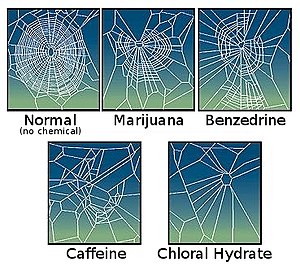
Check out these charts from giving different drugs to spiders. Obviously we’re nowhere close to a spider, but if I’m honest I do feel like too much caffeine will make my work rushed, frantic, and not of great quality – just like that spider’s web.
If you’re just doing simple tasks then a lot of caffeine is probably fine – but if you’re creating or learning, think twice before you hit the ‘turbo’ mode that comes with big amounts of caffeine.
Finally – remember how long caffeine takes to wear off: 8 hours! And if you have multiple cups, that means it will all be in your system for even longer.
I want to stress this because it’s caused a few nightmares for me. Where I’ve gone through a whole horrible day being super tired and getting through tons of coffee, only to be exhausted but unable to sleep because my minds still rushing at night. Cue another sleepless night, and an even worse day. Not a good cycle.
The bottom line? Try to stick to 2 cups of joe a day max, and don’t have them after 2/3pm at the latest. My personal rule is never after lunch. Maybe it sounds crazy, but it really makes a difference.
8. Loss of ‘Frisky-ness’
Another pretty significant reason to love hitting that pillow at night: it’ll give you a better sex life. Studies have shown that for both men and women, sleep deprivation causes a lack of sex drive and ability for things to ‘function’ properly.
For women, this study by Kalmbach et al surveyed 171 women daily about their sleep and sex lives. They found that a longer rest meant a better desire to get freaky in the next day. They found that:
a 1-hour increase in sleep length corresponded to a 14% increase in odds of engaging in partnered sexual activity
Not a bad trade-off for just sleeping!
Since that study only covered women, I wanted to confirm the same for men, too. Without going into too much detail, the same is true for men because a lack of sleep seriously suppresses testosterone. While this applies to women too, it’s much more significant for men given their higher testosterone levels. The effects of lower testosterone? Less focus, more tiredness, less muscle, a lowered sex drive, lower sperm count, and smaller testicles!
While in the short-term that may not be so bad, there’s a real bottom line, and it is this:
A continuous lack of sleep will cause your libido to drop. This will result in less sex with your partner, meaning you will both be less happy. If you are single, the drop in sex drive will result in less of a push to pursue a new partner – it could be the difference between saying hi to that really hot person you’re going to see in the supermarket later.
9. No buns in the oven.
This is another big negative but those who it applies to probably know it, so I’ll keep it short. Sleep loss seriously messes with your reproductive system.
While I touched on lower sperm count etc for men, routinely sleeping less than 6 hours a night means a 20% drop in women for a hormone which is needed for conception.
Need to find source to back-up lower reproductive/fertility rates in women. State than when combined with a partner like this, is bad.
Potentially use:
“honey I’ve been up all night, so statistically there’s a low chance I’ve got enough potent sperm to make a baby – we don’t need protection!”
10. We lose our good looks!
Perhaps worst of all, sleep is one of the best ‘tricks’ you can use to look great. And after bad sleep?
We all know the look. Bags under the eyes, dark circles, paler, and just generally worn down. Being tired means you can never give your best first impression to someone new, or look the best for your partner.
This is especially sad since Sleeping.Guide readers are some of the best looking people on the planet. Don’t let late nights ruin your good looks, friend!
Don’t believe me? Here’s a study proving it.
Researchers at Stockholm University asked judges to gauge the appearance of people using pictures of them after a full night’s sleep, and after a bad one. The conclusion was strongly found that a lack of sleep will mean a lack of attention from the opposite sex:
“Our findings show that sleep deprived people appear less healthy, less attractive, and more tired compared with when they are well rested. This suggests that humans are sensitive to sleep related facial cues, with potential implications for social and clinical judgments and behaviour.”
And Much More
Sleep is connected to everything.
Unfortunately, this article is already beyond 3,000 words – so I don’t want to bore you with more studies and cases! But for those of you still interested, here’s some other effects of being constantly tired because of 6 hours sleep:
- Loss of exercise ability. We lose our stamina (as well as motivation to work out).
- Long term risks. Extended periods of tiredness (living on 6 hours sleep) increases the risk of high blood pressure, heart issues, and anxiety/depression (especially in night shift workers)
- We get ill more. Your immune system drops, leaving you much more vulnerable. Especially dangerous if you’re travelling, working in an open-plan office, or commuting on public transport.
- We feel more pain. Our ‘toughness’ drops, and our ability to resist discomfort, pain, and hot/cold temperatures drops with it.
- We’re not our best selves. Perhaps the bottom line – we’re just not at our full capacity. Our family members aren’t enjoying you at your best, your work suffers – we just generally don’t represent the best version of ourselves. This thought alone is what motivates me most to switch off early at night.
Well, that wasn’t fun to right about! Remember that aside from all these scary sounding aspects of being tired, just remember that the opposites are also true. Getting more than 6 hours of sleep will help make you happier, calmer, more confident, and just closer to being the best version of yourself. All just by laying down and resting. What a deal!
Conclusion
In my opinion, sleep is one of the most underrated health aspects of our generation.
We’re all wrapped up in how much exercise we get and how many calories we consume… but sleep is often forgot about. Or, even worse, people pride themselves on how little sleep they get.
I hope this article has helped make you think about how much 6 hours of sleep really is.
